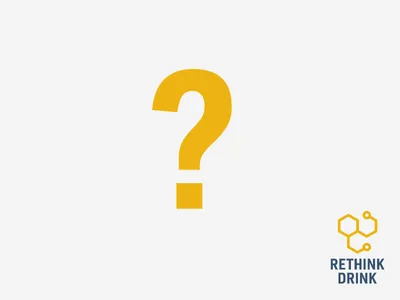
The Sinclair Method Questions: Everything You Need to Know Before You Begin
Key takeaways:
Understand the fundamentals of The Sinclair Method (TSM) and how it works
Learn what to expect with Naltrexone and the process of pharmacological extinction
Get answers to the most common concerns and misconceptions about TSM
Know where to find trusted support and guidance throughout your recovery
Discover how to take the first step with a free consultation
Taking that first step toward changing your relationship with alcohol can feel daunting—especially with so much conflicting information online. At Rethink Drink, we believe knowledge is power. That’s why we’re answering the most frequently asked Sinclair Method questions to guide you with clarity and confidence.
What Exactly Is The Sinclair Method?
The Sinclair Method (TSM) is a medically backed approach that uses targeted medication, specifically Naltrexone, to reduce alcohol cravings over time. The principle is simple: take Naltrexone one hour before drinking, and gradually, your brain unlearns the alcohol-reward connection.
This method is based on the science of pharmacological extinction, which retrains your brain’s neural pathways to diminish the pleasurable effects of alcohol—without requiring immediate abstinence.
How Long Does The Sinclair Method Take to Work?
TSM is not a quick fix; it's a process of steady change. Everyone’s journey looks different, but here’s a general idea of what you might expect:
Weeks 1–4: You may notice a decrease in the euphoric effects of alcohol. Cravings may start to lessen slightly.
Months 2–4: Many people report drinking less without feeling deprived. Drinking becomes more intentional.
Months 5–9: Urges become less frequent. There's a noticeable shift in drinking behaviour and thought patterns.
9–12 months and beyond: Many reach pharmacological extinction—meaning cravings and the psychological pull towards alcohol are virtually gone.
The key is consistency. The more often you follow the protocol—taking Naltrexone before every drinking session—the more effective it becomes.
Is Total Sobriety Required?
Not at all. One of the most attractive aspects of TSM is that abstinence is not a starting point requirement. This can be a huge relief for those who’ve tried to quit cold turkey without success.
Instead, you continue drinking while using the medication to dismantle the alcohol-reward loop. Over time, most people find that their desire to drink naturally fades. Some choose sobriety in the long run, others adopt moderate, mindful drinking.
What If I Forget to Take the Medication?
This is one of the most common Sinclair Method questions—and it’s an important one. If you forget to take Naltrexone before drinking, the process of extinction can be interrupted or reversed.
To stay on track:
Set daily alarms or phone reminders
Keep your medication somewhere visible
Pair medication-taking with a consistent routine (like brushing your teeth)
Talk to a coach or accountability partner for support
We also cover practical guidance on this topic in our FAQ section.
Are There Side Effects?
Naltrexone is well-tolerated by most, but as with any medication, side effects can occur. These are usually mild and temporary, especially as your body adjusts. Common side effects include:
Mild nausea
Headaches
Drowsiness or tiredness
Digestive issues
These symptoms generally subside within the first couple of weeks. If they persist or worsen, we recommend speaking with your GP or one of our qualified team members.
Can I Still Drink Socially?
Yes, and this is why so many people find TSM a realistic alternative to traditional sobriety-based programmes. You can continue to enjoy social events while reducing your dependence on alcohol in the background.
The difference is, with TSM:
You’re in control
Your drinking becomes mindful
Cravings start to fade
The pleasure associated with alcohol lessens over time
Many clients say they feel “indifferent” to alcohol after several months—a freedom they never thought possible.
Where Can I Get Started?
If you’ve still got questions, don’t worry—you're not alone. We’ve compiled answers to more of the most common concerns over on our FAQ page.
And if you’re ready to explore whether The Sinclair Method is the right path for you, we offer a free screening call. It’s a pressure-free way to get expert advice and take the first step with confidence.


